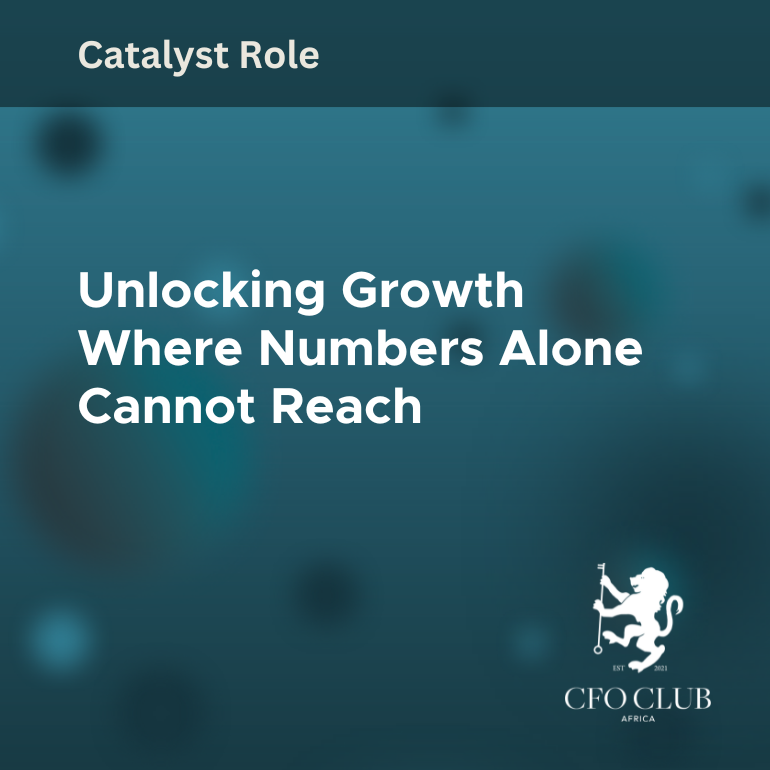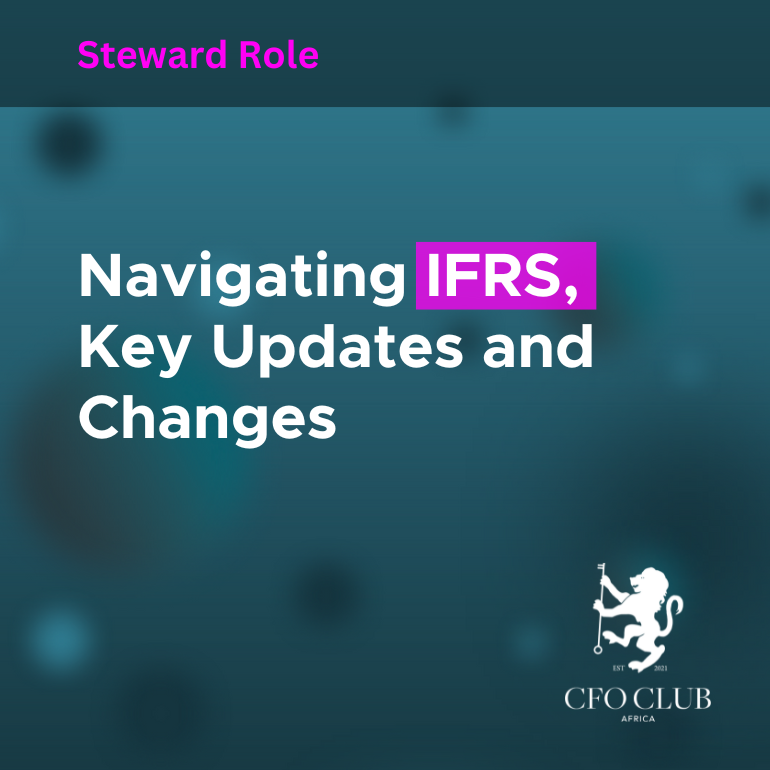Unlocking Growth Where Numbers Alone Cannot Reach
When businesses face disruption, most instinctively turn to the numbers. Margins shrink, forecasts wobble, and cash flow models are pulled out to see where efficiencies can be found. But sometimes, the numbers alone are not enough. Real transformation often begins not in spreadsheets but in vision, trust, and bold collaboration.
The recent partnership between Exxaro Resources and Transnet is one such story. At first glance, it looks like a simple service agreement: a mining company and a rail operator working together to improve logistics. But behind it lies a deeper lesson for finance leaders. It shows that lasting change happens when leaders step outside the comfort zone of financial levers and act to reshape the environment in which their organisations operate.
When the Numbers Are Not Enough
For Exxaro, the challenge was clear. Its Leeuwpan coal mine in Mpumalanga needed a turnaround. Logistics bottlenecks such as trains not running on time, rail capacity falling short, and inefficiencies piling up were undermining the viability of the operation. If left unchecked, these challenges would not just dent revenue. They could cost jobs, weaken trust, and ultimately threaten the sustainability of the mine.
Traditional financial levers such as cost-cutting, tighter reporting, or delaying investment would not have solved the underlying issue. This was not a case of trimming fat. It was about reshaping the system. Exxaro’s leadership recognised that the problem was bigger than internal efficiencies. It needed an external solution that involved cooperation, shared planning, and mutual accountability with a critical logistics partner.
This is where finance leadership makes its mark. Recognising when a problem requires more than financial gymnastics is the difference between short-term patching and long-term resilience.
Unlocking Value Through Collaboration
The agreement between Exxaro and Transnet did not just secure trains on tracks. It secured the future of a mine, the livelihoods of employees, and the trust of stakeholders. By entering into a structured service arrangement with Transnet Freight Rail, Exxaro created a platform where performance expectations were clearly defined, joint planning became the norm, and capacity constraints were tackled with accountability on both sides.
This kind of collaboration has a ripple effect. For the company, it ensures the mine remains viable. For the community, it helps safeguard jobs. For the national economy, it strengthens a critical link in the energy and export value chain.
The financial lesson is simple. Sometimes the best way to protect revenue and cash flow is not by cutting costs but by expanding capacity through strategic partnerships. By broadening the frame of what counts as a financial solution, leaders unlock value that pure accounting measures could never achieve.
Leading with Belief and Purpose
Numbers tell a story, but people want more than figures. Employees want to know their jobs are secure. Boards want to know the business is future-fit. Investors want to know that resilience is being built, not just survival strategies. Communities want to know that corporate players see their role in sustaining livelihoods.
When Exxaro announced this partnership, it did so not in the language of technical contracts but in the language of belief. It thanked Transnet for the constructive way the deal was reached. It spoke of sustaining jobs. It emphasised the contribution to the national economy. This matters.
Finance leaders are often seen as guardians of numbers, but in times of disruption, they are also narrators of hope. The ability to explain how change creates opportunity is as powerful as presenting a strong balance sheet. It reassures stakeholders that the business is not only surviving but building towards something stronger.
Beyond the Mine, Beyond the Numbers
The Exxaro and Transnet story may be set in the mining and logistics space, but its lesson extends to every industry. Retailers face supply chain disruptions. Manufacturers face rising input costs and infrastructure challenges. Service firms face regulatory shifts and technological change. In each case, financial sustainability may depend less on internal tinkering and more on external collaboration.
Consider a retailer struggling with unreliable imports. The answer might not be slashing marketing budgets but entering into a joint arrangement with logistics providers or even local manufacturers to secure supply. Consider a manufacturer facing energy instability. The real solution might be partnering with energy providers to secure renewable capacity. Consider a tech start-up battling late payments from clients. Building cooperative financing structures with banks or partners could unlock growth more effectively than squeezing already thin margins.
These are not accounting manoeuvres. They are structural changes that require vision, courage, and the ability to look beyond the balance sheet.
Rebuilding Trust as an Economic Asset
Another vital lesson from the Exxaro and Transnet case is the theme of trust. In South Africa, the relationship between private business and state-owned entities has often been strained. Years of inefficiency, mismanagement, and underperformance have eroded confidence.
By entering into a transparent, performance-driven partnership, both Exxaro and Transnet signalled a willingness to rebuild trust. That act alone carries financial weight. Trust attracts investors, reassures lenders, and stabilises communities. It is an intangible asset with real economic impact.
Finance leaders everywhere must see trust as part of their balance sheet. It is not listed in the assets column, but it influences cost of capital, market valuation, and the ability to execute strategy. Building trust through transparency, ethical governance, and collaborative agreements is as important as delivering financial returns.
From Monitoring to Movement
Too often, finance is seen as a function of monitoring: reporting numbers, controlling costs, and ensuring compliance. These are important, but they are not enough to sustain businesses in uncertain times. The real impact comes when finance leadership turns monitoring into movement.
That means recognising inflection points where traditional levers are insufficient. It means having the courage to champion bold partnerships that may look risky on paper but make strategic sense in reality. It means framing financial decisions not only in terms of profit and loss but in terms of jobs saved, industries stabilised, and economies strengthened.
The Exxaro and Transnet partnership is a case in point. It shows what happens when leaders step out of the spreadsheet and into the boardroom as agents of change.
The Takeaway
For finance leaders, the question is no longer whether they can manage numbers. They can. The real question is whether they are willing to shape the environment in which those numbers are made.
Change does not wait. It demands vision, belief, and the courage to look beyond the balance sheet. Those who embrace this mindset will not only protect the financial sustainability of their organisations but will also spark transformations that ripple far beyond their own walls.





